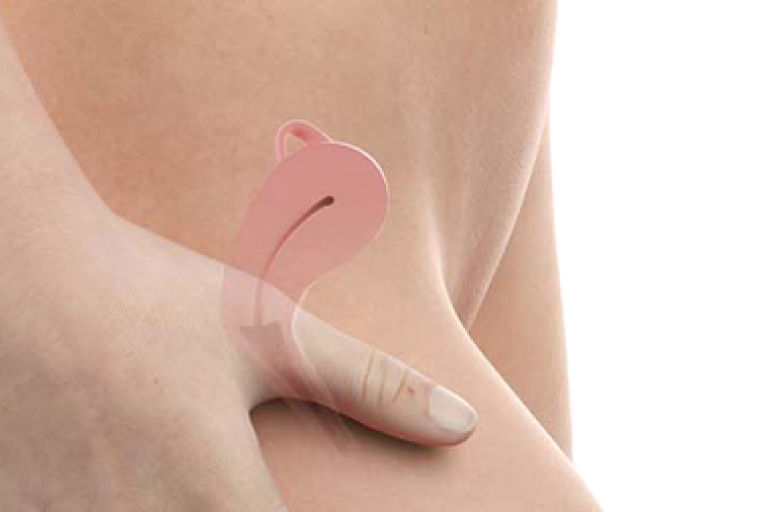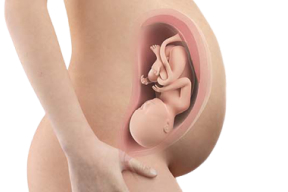Fertilization
The newly fertilized egg is now officially called a zygote and it starts dividing into more and more cells, until around the third day, when what was originally two cells, have now become twelve. The zygote is still in the fallopian tube at this stage, though it is steadily finding its way down to the uterus where it will stay, hopefully for another 37 weeks or so. Little finger like projections of hair called cilia line the fallopian tube and wave the zygote along to discourage it from settling in where it shouldn’t. It takes around 60 hours for the fertilized egg to make its way down to the uterus, by which stage there are 60 cells, all with a predetermined job and a specialized function. The outer cells will form the placenta; the inner cells will form the baby.
Around a week after the egg has been fertilized in the fallopian tube, it embeds in the lining of the uterus. By now, there are 100 cells bunched together and it is called a blastocyst. At this early point, the pregnancy hormone Human Chorionic Gonadotrophin (HCG) is produced, and it is this hormone which can be detected in your urine or blood when a pregnancy test is done. If the signals to keep producing HCG aren’t received, the lining of the uterus isn’t needed and is shed in your next period.
Your physical changes this week
Some women are convinced that they are able to tell as soon as they conceive. They report a strange taste in their mouth, just feeling different or odd, or a sense that something has happened. Being 3 weeks pregnant is still so early that hormonal changes probably aren’t responsible for symptoms at this stage, but we cannot discount what a lot of women swear to be true.
Nature is set up to succeed. You don’t need to be extra careful about physical activity or changing your usual routines. If one of your eggs has been fertilized, it already knows where to go and what it has to do.
Your emotional changes this week
Your baby's changes this week
Hint for the week
Be aware of any hazards around you. There are risks with some environmental factors such as pesticides and poisons which can have an effect on early cell division in pregnancy.
Try to avoid drinking any alcohol or taking any medication unless it has been especially prescribed for you.
Don’t forget to start taking a prenatal vitamin with a folic acid supplement included.
Now, let's see what happens in week 4 when implantation of the fertilized egg occurs.
For more information see Pregnancy or Week by Week.
The information of this article has been reviewed by nursing experts of the Association of Women’s Health, Obstetric, & Neonatal Nurses (AWHONN). The content should not substitute medical advice from your personal healthcare provider. Please consult your healthcare provider for recommendations/diagnosis or treatment. For more advice from AWHONN nurses, visit Healthy Mom&Baby at health4mom.org.










